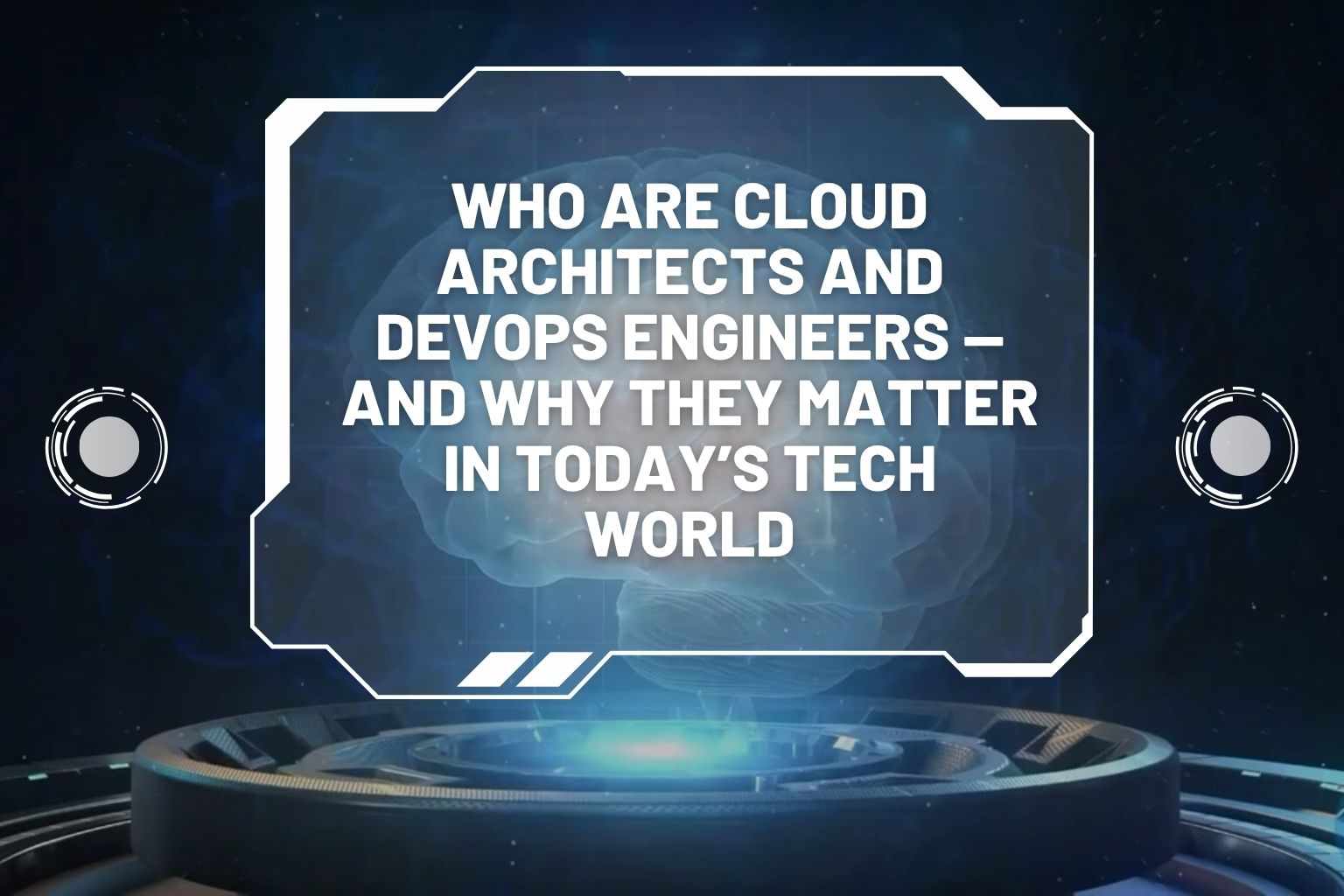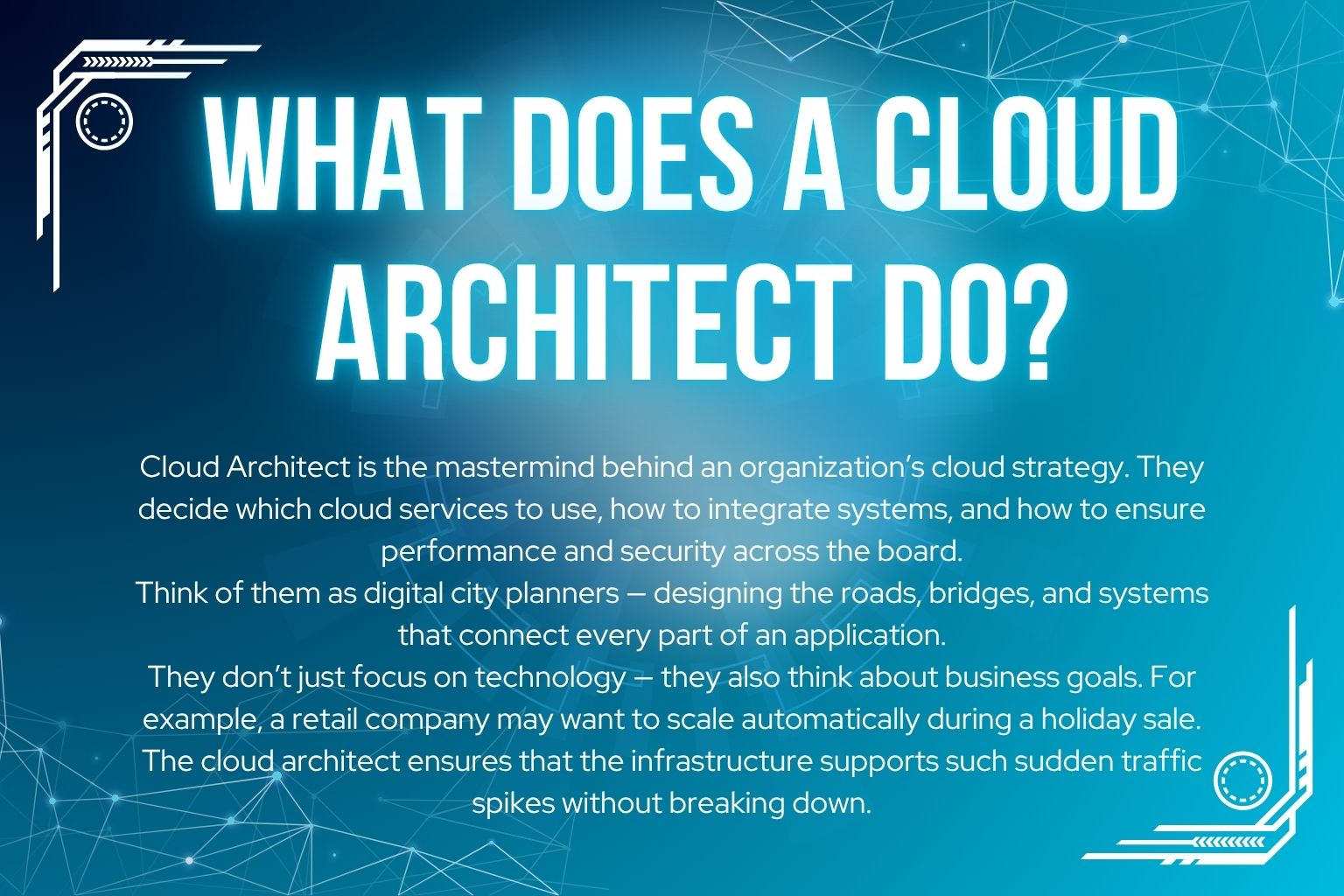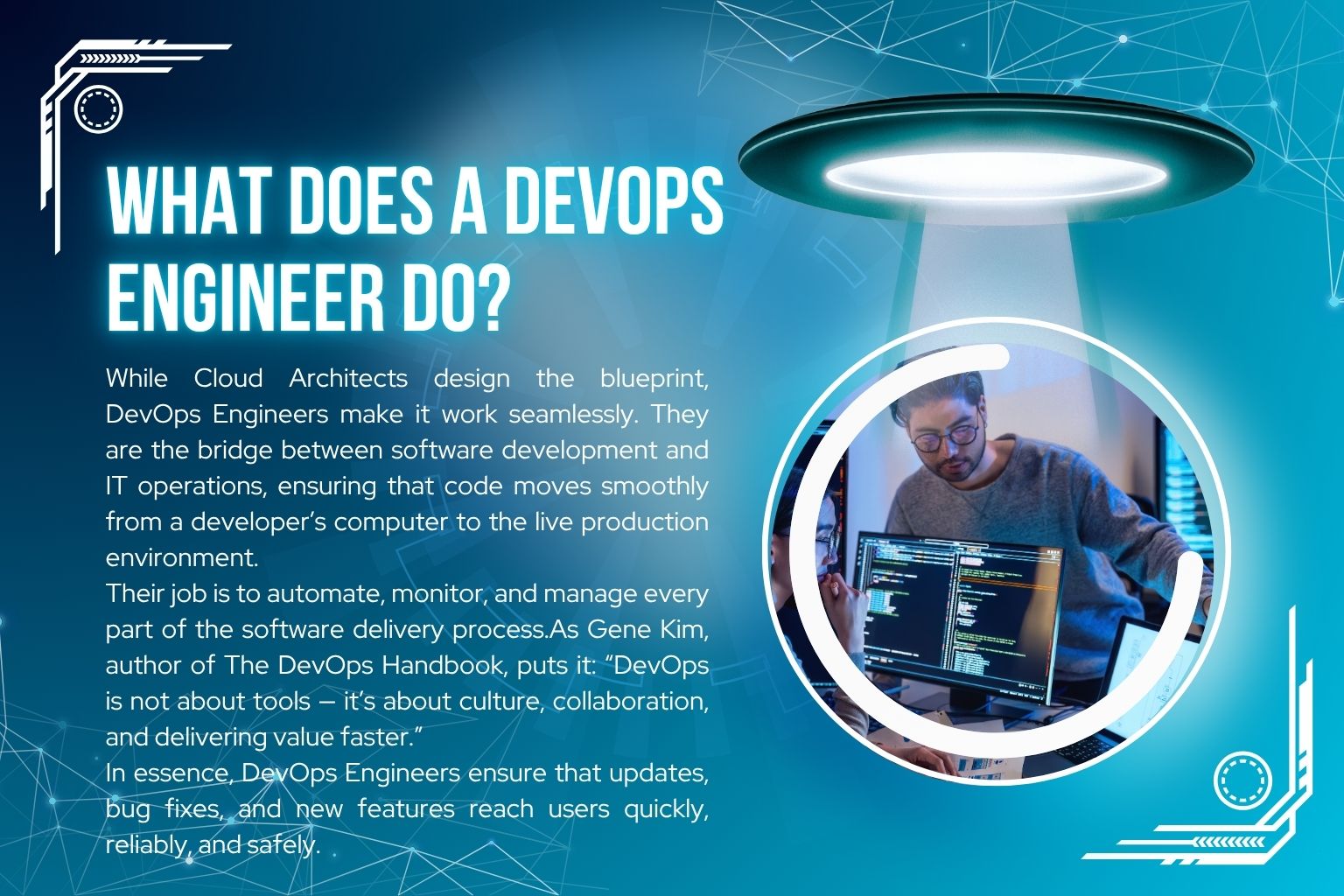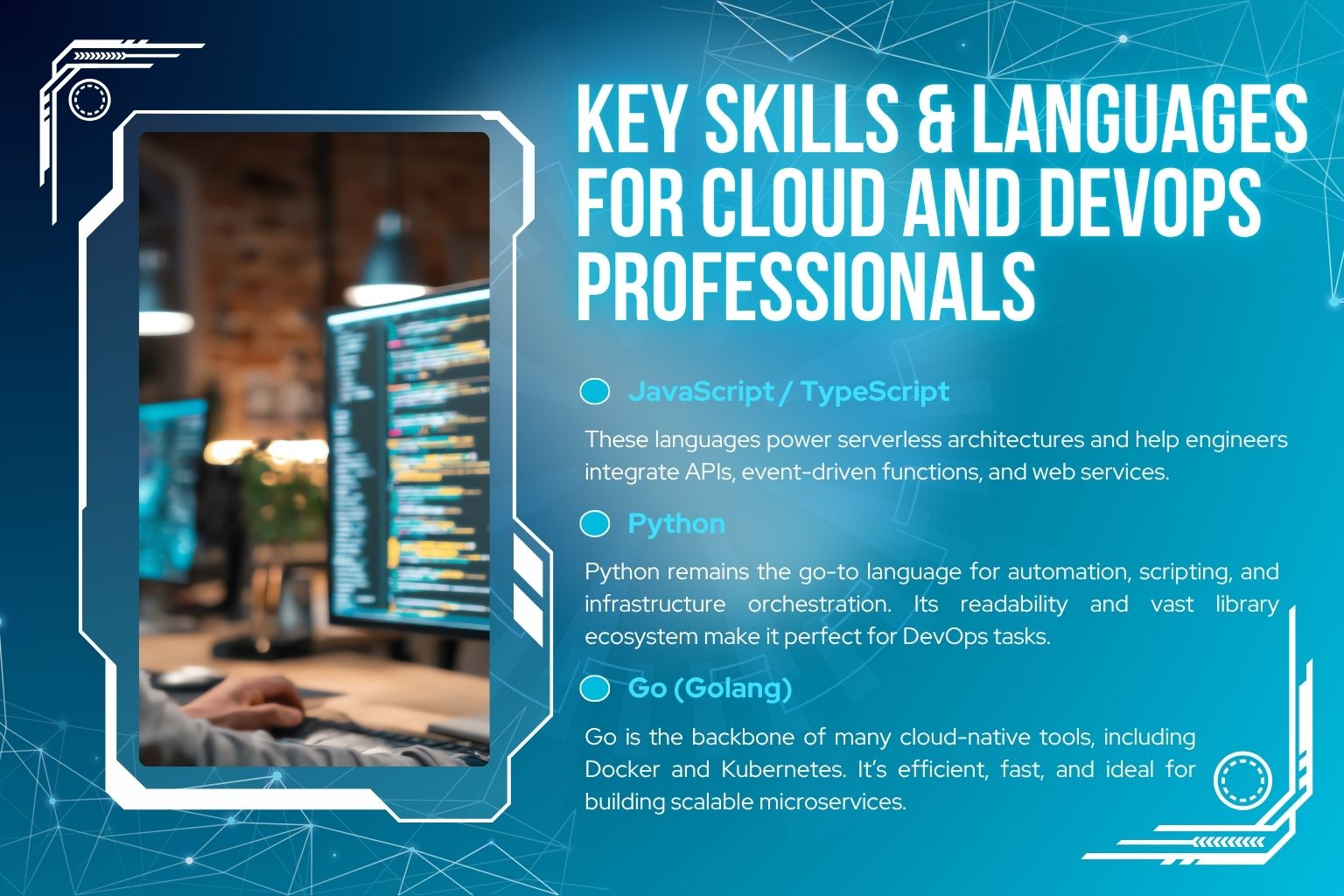Who Are Cloud Architects and DevOps Engineers — and Why They Matter in Today’s Tech World
Smash Code
Oct 11, 2025

Think of a Cloud Architect as the architect of a skyscraper — designing every floor and beam. The DevOps Engineer is the construction manager — ensuring it’s built exactly as planned and maintained efficiently once complete.
Technology is evolving faster than ever. Businesses are shifting from traditional servers to cloud-based systems to stay agile, secure, and scalable. But this massive transformation doesn’t just happen on its own — it’s powered by two key roles: Cloud Architects and DevOps Engineers.
They are the builders, problem-solvers, and silent heroes behind every smooth app deployment, every fast-loading website, and every scalable online platform. Without them, the digital transformation we take for granted simply wouldn’t exist.
Why These Roles Will Dominate the Future of Technology
Today, nearly every organisation — from small startups to global enterprises — is migrating to the cloud. According to Gartner, “by 2027, more than 85% of organisations will embrace a cloud-first principle.”
But moving to the cloud isn’t as simple as transferring files or hosting websites.
Many companies initially try a “lift-and-shift” approach — moving their old systems to the cloud without any redesign. However, this often leads to inefficiency and higher costs.
To truly unlock the power of the cloud, systems must be re-architected to use modern cloud services and automation.
That’s where Cloud Architects and DevOps Engineers come in.
“Cloud architects design the blueprint of the cloud environment, while DevOps engineers bring that design to life through automation and continuous delivery,” explains Kelsey Hightower, a well-known cloud computing expert.
Together, they ensure that applications run efficiently, remain secure, and can handle millions of users across the globe — all while minimising downtime.
What Does a Cloud Architect Do?

A Cloud Architect is the mastermind behind an organisation’s cloud strategy. They decide which cloud services to use, how to integrate systems, and how to ensure performance and security across the board.
Think of them as digital city planners — designing the roads, bridges, and systems that connect every part of an application.
Their responsibilities include:
- Designing scalable and secure cloud environments
- Choosing between platforms like AWS, Microsoft Azure, or Google Cloud
- Creating disaster recovery and backup plans
- Ensuring compliance with data protection regulations
- Helping development teams understand cloud capabilities
They don’t just focus on technology — they also think about business goals. For example, a retail company may want to scale automatically during a holiday sale.
The cloud architect ensures that the infrastructure supports such sudden traffic spikes without breaking down.
What Does a DevOps Engineer Do?

While Cloud Architects design the blueprint, DevOps Engineers make it work seamlessly. They are the bridge between software development and IT operations, ensuring that code moves smoothly from a developer’s computer to the live production environment.
Their job is to automate, monitor, and manage every part of the software delivery process.
A DevOps Engineer typically:
- Builds automated deployment pipelines
- Uses tools like Jenkins, GitLab CI/CD, or GitHub Actions
- Monitors system health with Prometheus, Grafana, or Datadog
- Manages infrastructure with Terraform and Kubernetes
- Ensures smooth collaboration between developers and system admins
As Gene Kim, author of The DevOps Handbook, puts it: “DevOps is not about tools — it’s about culture, collaboration, and delivering value faster.”
In essence, DevOps Engineers ensure that updates, bug fixes, and new features reach users quickly, reliably, and safely.
Key Skills & Languages for Cloud and DevOps Professionals

Cloud and DevOps roles demand both technical expertise and a problem-solving mindset. As systems become more complex, engineers must be fluent in modern programming languages and cloud technologies.
Here are some essential skills and tools:
1. Go (Golang)
Go is the backbone of many cloud-native tools, including Docker and Kubernetes. It’s efficient, fast, and ideal for building scalable microservices.
2. Python
Python remains the go-to language for automation, scripting, and infrastructure orchestration. Its readability and vast library ecosystem make it perfect for DevOps tasks.
3. JavaScript / TypeScript
These languages power serverless architectures and help engineers integrate APIs, event-driven functions, and web services.
4. Cloud Platforms
Proficiency in at least one major provider — AWS, Azure, or Google Cloud Platform (GCP) — is a must. Each platform has unique services for compute, storage, and AI integration.
5. Infrastructure as Code (IaC)
Tools like Terraform, Ansible, and Pulumi allow engineers to manage infrastructure through code, ensuring repeatability and version control.
6. Containerization and Orchestration
Technologies like Docker and Kubernetes enable applications to run reliably across environments. They are the foundation of modern DevOps.
7. Security and Monitoring
Understanding cloud security, identity management, and observability tools is crucial to preventing breaches and ensuring compliance.
The Growing Complexity of Modern Infrastructure
Today’s systems don’t just handle websites or databases. They power AI workloads, real-time analytics, IoT devices, and edge computing. This means more moving parts, more integrations, and more risk.
For example, a global e-commerce platform might process millions of transactions per hour while simultaneously analysing data to personalise user experiences. DevOps engineers ensure this happens without performance lags or data loss.
As Satya Nadella, CEO of Microsoft, once said:
“Every company is now a software company. You have to start thinking and operating like a digital company.”
That’s why Cloud and DevOps professionals are in such high demand — they’re the ones keeping this digital engine running.
Future Outlook for Cloud Architects
The future for Cloud Architects is bright and full of innovation. Their role is expanding beyond simple cloud migrations to building intelligent, AI-powered systems that adapt and learn.
They will design platforms that:
- Support AI agents and machine learning workloads
- Integrate with Internet of Things (IoT) devices
- Scale globally with edge computing
- Maintain data privacy and regulatory compliance
In short, Cloud Architects will be the strategic backbone of every major enterprise, enabling teams to innovate faster and smarter.
According to Forrester Research, “the demand for cloud-native talent will outpace supply by 60% over the next five years.”
This means now is the perfect time for aspiring professionals to enter this field.
How Cloud Architects and DevOps Engineers Work Together
Although their roles differ, Cloud Architects and DevOps Engineers work in perfect harmony.
- The Cloud Architect lays out the vision — designing a secure and scalable environment.
- The DevOps Engineer executes that vision — automating, deploying, and monitoring applications within that environment.
Their teamwork ensures that software reaches users faster, systems stay online longer, and data remains safe at all times.
Career Opportunities and Demand
The global cloud computing market is expected to surpass $1 trillion by 2030, and with that comes an explosion in demand for cloud and DevOps experts.
Top industries hiring for these roles include:
- Finance and FinTech
- Healthcare and Biotechnology
- E-commerce and Retail
- Gaming and Media Streaming
- AI and Machine Learning Startups
According to Indeed, the average salary for a Cloud Architect in the U.S. is around $150,000 per year, while experienced DevOps Engineers earn between $120,000–$160,000.
How to Start a Career in Cloud or DevOps
If you’re inspired by these roles, here’s how to begin your journey:
- Learn Cloud Fundamentals — Start with AWS or Azure free training.
- Master Linux and Networking Basics — Core knowledge for all deployments.
- Pick a Programming Language — Python or Go are great for automation.
- Get Certified — AWS Certified Solutions Architect or Azure DevOps Expert certifications are valuable.
- Build Projects — Create CI/CD pipelines, deploy apps on Kubernetes, or automate infrastructure with Terraform.
- Join Communities — Participate in open-source DevOps or cloud projects.
With persistence and curiosity, you can grow into one of the most in-demand tech careers of the decade.
FAQs About Cloud Architects and DevOps Engineers
1. What’s the main difference between a Cloud Architect and a DevOps Engineer?
A Cloud Architect designs the cloud environment and infrastructure, while a DevOps Engineer automates and manages the deployment process within that environment.
2. Can one person handle both roles?
In smaller teams, yes. Many professionals start as DevOps Engineers and grow into Cloud Architecture as they gain experience.
3. Which certifications are best for beginners?
- AWS Certified Cloud Practitioner
- Microsoft Certified: Azure Fundamentals
- Google Associate Cloud Engineer
- Docker and Kubernetes certifications
4. Are these jobs future-proof?
Absolutely. As long as companies build and deploy applications online, there will always be a need for Cloud and DevOps professionals.
5. How long does it take to become a Cloud or DevOps expert?
With consistent learning, hands-on projects, and certifications, you can become job-ready in 12–18 months.
Final Thoughts
Cloud Architects and DevOps Engineers are not just tech roles — they’re the foundation of the digital future. From powering AI applications to enabling real-time global collaboration, their work makes the modern world possible.
As technology continues to evolve, one thing remains clear:
Cloud and DevOps professionals are — and will continue to be — the true backbone of modern technology.